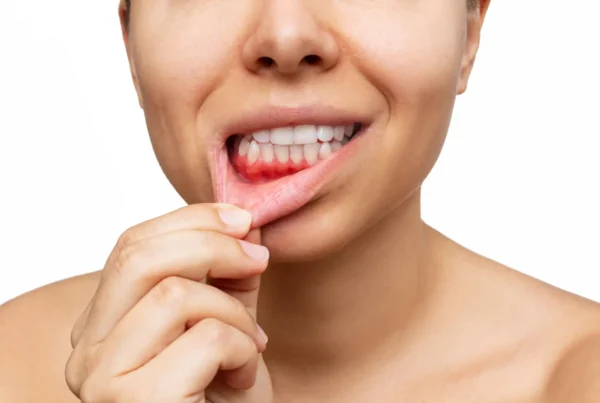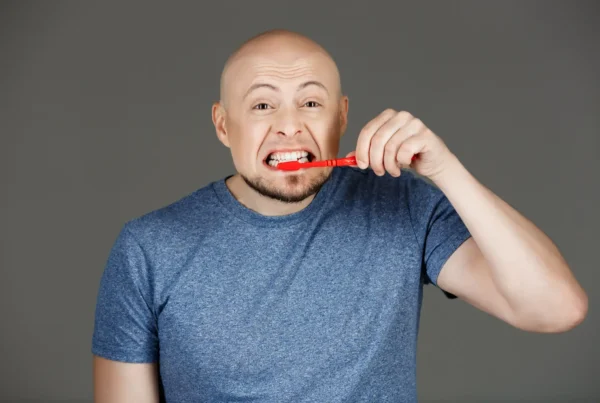Many of us have experienced the unpleasant burning sensation known as heartburn. It’s caused by stomach contents flowing back into the esophagus. When this happens frequently, it’s diagnosed as gastroesophageal reflux disease (GERD), which can negatively affect not only the digestive system but also the health of your mouth. Learn how to properly care for your teeth when dealing with acid reflux.
What is acid reflux?
Gastroesophageal reflux, commonly known as GERD, is a condition in which stomach contents repeatedly flow back into the esophagus, causing uncomfortable symptoms. Along with food, digestive enzymes and gastric acid return, which may lead to symptoms like heartburn.
The normal pH level in the mouth should be around 7.2. When it drops below 5.5, enamel can begin to erode, leading to tooth sensitivity. Gastric acid has a pH of about 2, making its presence in the mouth particularly damaging to teeth and soft tissues like the tongue.
Reflux occurs when the lower esophageal sphincter functions improperly or becomes weak. This can be triggered by conditions such as diabetes, scleroderma, hormonal imbalances, chronic alcohol use, or certain medications like antihypertensives, contraceptives, or anticholinergics. Risk factors include obesity, pregnancy, hiatal hernia, esophageal motility disorders, delayed stomach emptying, and compromised esophageal mucosal integrity. Symptoms may include painful swallowing, abdominal pain, burning sensations in the mouth, weight loss, persistent vomiting, bleeding from the esophagus, and difficulty swallowing.
How reflux affects oral health
As mentioned earlier, GERD can lower the pH in the mouth, weakening teeth and making them more prone to cavities. Enamel erosion is common, leading to an unaesthetic appearance and increased tooth sensitivity. A lower pH may also result in dry mouth, which increases the risk of mechanical damage and inflammation in the oral cavity.
How to care for your mouth with acid reflux
If you’re experiencing symptoms of reflux, it’s crucial to visit a gastroenterologist for proper diagnosis and treatment. You should also schedule a dental check-up. A dentist can assess the condition of your teeth, recommend appropriate treatment, and guide you on how to minimize the effects of reflux on your oral health.
Daily brushing remains essential, but avoid brushing your teeth immediately after a reflux episode. Why? Because the enamel is softened by the acid, and brushing too soon can cause further erosion. Additionally, some toothpastes contain abrasive ingredients that may worsen the damage. After an episode, rinse your mouth with cool or lukewarm water instead. Chewing sugar-free gum can also help, as it stimulates saliva production, preventing dry mouth and restoring the proper pH balance.
Use fluoride toothpaste to strengthen your enamel and protect against demineralization. And of course, don’t forget about regular dental visits.
Your diet also plays a key role. Avoid fried, fatty, and spicy foods, as well as sugary carbonated drinks and acidic juices. These all worsen reflux and its impact on oral health.
Treating damage caused by reflux
When stomach acid regularly reaches the mouth, it can lead to cavities and inflammation in surrounding tissues. In such cases, your dentist may recommend fillings, but only after carefully cleaning and treating the damaged tooth. More advanced damage might require prosthetic dental work, such as crowns or veneers, to restore function and aesthetics.






